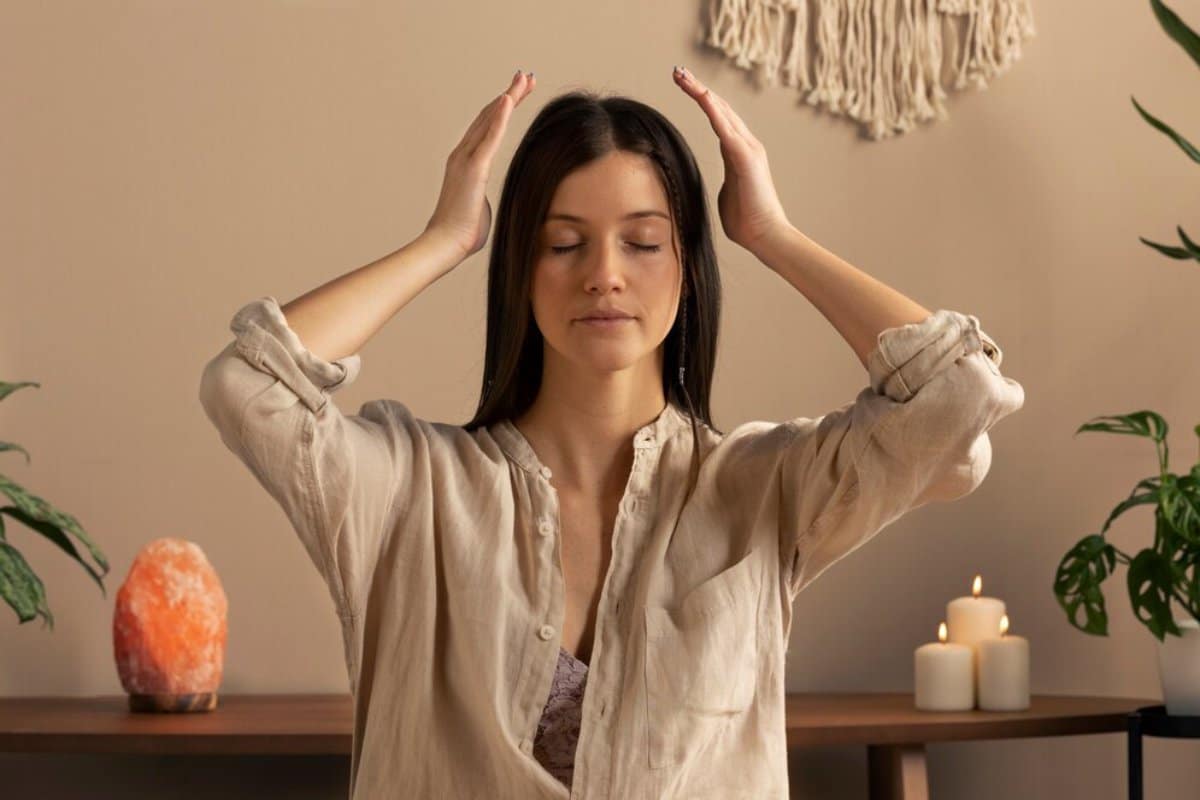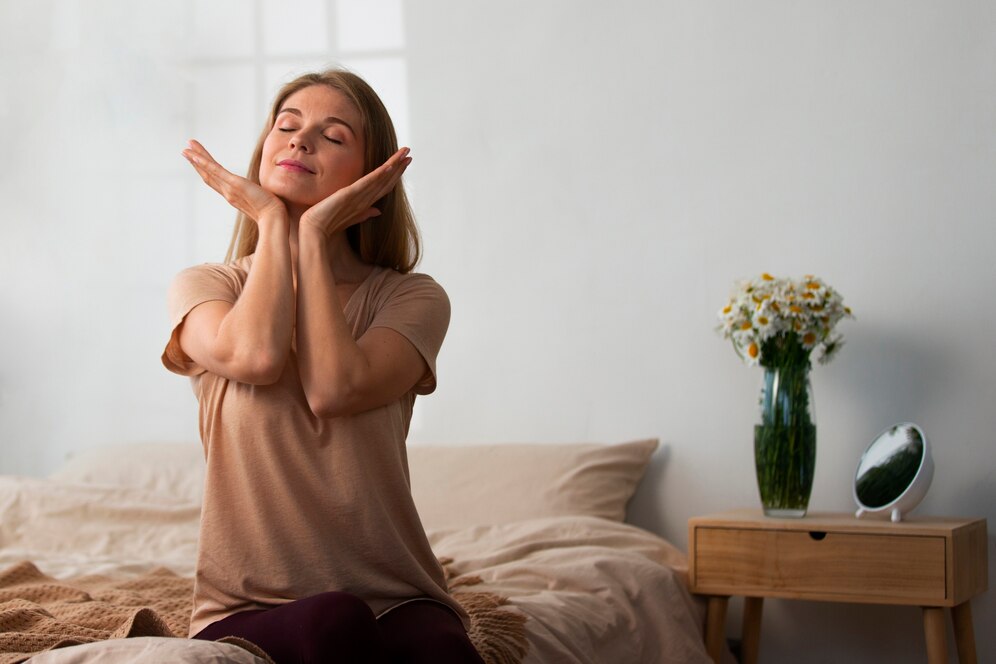
How to Manage Stress Through Mindfulness for Better Mental Well-Being
Managing stress with mindfulness is a powerful practice. It builds awareness and supports emotional balance.
Our team looked into different mindfulness techniques. We found that adding these practices to daily life can cut stress and boost mental well-being. Mindfulness connects the mind and body, helping people manage stress better and find calm and clarity.
The main idea of stress management through mindfulness is to stay present and observe thoughts without judgment. This method lowers emotional reactions and brings inner peace. Regular mindfulness practices can boost focus, improve emotional control, and enhance mental health, our research shows.
Mindfulness techniques, such as meditation, deep breathing, and body scans, help you manage stress better. Mindfulness boosts self-awareness, builds resilience, and improves how we face challenges. With our expert help, you can build habits that let you handle stress easily.
Pro Tip: Begin with short, 5-minute mindfulness sessions. Gradually increase the time as you get comfortable.
Quick Guide: Practising Mindfulness for Stress Management
- Find a Quiet Space: Choose a calm, distraction-free environment where you can focus on your practice.
- Begin with Deep Breathing: Engage in slow, controlled breathing to calm the mind and body.
- Practice Body Scan Meditation: Focus on each part of your body, noticing any sensations or tension.
Understanding the Need for Mindfulness in Stress Management
Our go-go-go world is filled with stress and anxiety. They affect our bodies and our minds. Mindfulness builds coping skills for what happens next. With these skills come greater emotional stability and clearer thinking. Integrating mindfulness into everyday practices can strengthen resilience and develop a more balanced mindset.
Unlike a simple relaxation method, mindfulness is an overall technique that conditions the brain to be present and cope with obstacles more effectively. Mindfulness has been seen by our team to improve emotional regulation, reduce anxiety, and foster a deep sense of calm.
Mindfulness practices are so adaptable that people can select or style practices to their liking. The options are endless, from meditation and mindful breathing to journaling and more. Mindfulness practices, when done regularly, can greatly help to manage stress and improve mental well-being.
Additionally, raising awareness as a habit allows individuals to respond to stressors more effectively. The practice of self-awareness and regulation of emotions can achieve these characteristics and have extensive benefits for health and happiness.
How to Practise Mindfulness for Stress Management
1. Create a Calm Environment

Select a space where you feel comfortable and free from distractions. This could be a quiet corner of your home or a peaceful outdoor setting. Establishing a consistent space for your mindfulness practice helps reinforce a sense of routine.
2. Start with Deep Breathing Exercises
Start your mindfulness practice by observing your breathing. Breathe in deeply through your nose, hold it for a few seconds, and exhale gently through your mouth. Deep breathing engages the parasympathetic nervous system, which induces calmness and reduces anxiety.
3. Engage in Mindful Meditation
Find a breathing exercise or mindfulness meditation where you can sit comfortably and pay attention to your breath or the way something feels. If the thoughts start to drift, kindly bring your focus back to the present moment. With time, this practice improves focus and decreases stress levels.
4. Try a Body Scan Technique
Perform a body scan by directing your attention to different parts of your body, starting from your toes and moving upward. Notice any tension or discomfort without judgment. This practice promotes relaxation and heightens body awareness.
5. Incorporate Mindfulness into Daily Activities
Mindfulness is not limited to meditation sessions. You can practice being present while eating, walking, or even during conversations. By bringing awareness to everyday tasks, you create opportunities for stress relief throughout the day.
Best Mindfulness Practices for Stress Management
Incorporating mindfulness into your lifestyle can enhance its effectiveness in managing stress. Consider adding the following practices to your routine:
- Journaling: Reflect on your thoughts and emotions to gain insight and clarity.
- Gratitude Practice: Focus on positive aspects of your life to shift your mindset.
- Mindful Movement: Engage in activities like yoga or tai chi that promote body awareness and relaxation.
Recommended Resources for Mindfulness and Stress Management
- Headspace: A guided meditation app. It has many mindfulness exercises. These help reduce stress and improve mental focus.
- Calm: An app that helps you relax. It offers meditation, breathing exercises, and sleep stories.
- Insight Timer: A free app with an extensive library of guided meditations and mindfulness practices.
- Ten Percent Happier: A mindfulness app. It’s great for both beginners and seasoned meditators.
- The Mindfulness App: A full app offering timed meditation sessions and personalised mindfulness reminders.
Important Considerations:
Be Patient with Yourself: Mindfulness is a skill that develops over time. Do not be discouraged if your mind wanders during practice. Don’t Overload Yourself: Begin with short sessions. Then, slowly increase the time to avoid feeling overwhelmed. Seek Help: If mindfulness practice increases your anxiety or distress, talk to a mental health professional.
Frequently Asked Questions About Managing Stress Through Mindfulness
What Are the Benefits of Mindfulness for Stress Management?
Mindfulness helps reduce stress, enhance emotional regulation, and improve mental clarity. It promotes a sense of calm and balance by encouraging present-moment awareness.
How Often Should I Practice Mindfulness?
Our team recommends practising mindfulness for at least 5-10 minutes daily. Be consistent to enjoy long-term benefits. Try to add mindfulness to your daily routine.
Can Mindfulness Help with Anxiety?
Mindfulness can lower anxiety. It does this by helping you relax and being aware of your thoughts. Over time, it can help individuals develop healthier responses to stress and anxiety.
Do I Need Special Equipment to Practise Mindfulness?
No special equipment is required. Mindfulness can be practised anywhere, whether sitting quietly, walking mindfully, or engaging in everyday activities.
How Can I Stay Consistent with Mindfulness Practices?
To maintain consistency, schedule regular mindfulness sessions and set achievable goals. Using apps or guided meditations can also help establish a routine.
Conclusion: Cultivating Mindfulness for Long-Term Stress Relief

Incorporating mindfulness into your daily life can be a powerful tool for managing stress and promoting mental health. By practising techniques such as deep breathing, body scans, and mindful meditation, you can cultivate a greater sense of calm and resilience. Our team highlights the importance of consistency, as regular mindfulness practice leads to long-term improvements in emotional balance and stress management. Begin your journey towards a more mindful and peaceful life today.


